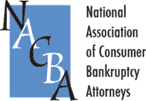
 When you are behind on bills or debts, your creditors are allowed to take steps to recoup their money, including wage garnishment. Most creditors, such as those holding credit card or vehicle loans, will need to go to court to get an order in to garnish wages. This means that many of them will try other debt collections, such as mailings and calls, prior to taking the time to seek a garnishment order.
When you are behind on bills or debts, your creditors are allowed to take steps to recoup their money, including wage garnishment. Most creditors, such as those holding credit card or vehicle loans, will need to go to court to get an order in to garnish wages. This means that many of them will try other debt collections, such as mailings and calls, prior to taking the time to seek a garnishment order.
Certain debts, such as unpaid income taxes, child support, or student loans, no court order is required to begin the wage garnishment. While you will generally receive other communications and debt collection attempts prior to a wage garnishment, you should always be aware of your debt obligations. You may be able to in order to avoid garnishment.
Garnishment Limits
However, the state of California places limits on creditor actions. All garnishments are capped at the lesser of:
- 25% of your wages after deductions, such as retirement contributions, taxes, and other mandatory withholding
- The amount by which your weekly wages exceed 40 times the state minimum wage
If your weekly wages do not exceed 40 times the state minimum wage, then your creditors will not be able to garnish anything. The federal law only protects wages under 30 times the federal minimum wage, making California a more protective state.
In addition to limits on how much can be garnished, there are also built-in employment protections. Wage garnishments require that your employer take money from your check and send it to the requisite creditor. Federal law prevents your employer from firing you as a result of one wage garnishment. However, more than one garnishment is not covered by law, so you may find your employer firing you to avoid the hassle of complying with multiple wage garnishment orders.
Bankruptcy Protections
If your financial situation is particularly dire, you may be considering bankruptcy. The good news is that bankruptcy can stop most garnishments immediately via the automatic stay. The automatic stay goes into effect immediately upon filing for bankruptcy. If you file a Chapter 7 bankruptcy, garnishments for child support or alimony will not be stopped. A Chapter 13 bankruptcy, on the other hand, will stop all garnishments, but will require that you create a plan to pay certain debts, such as back child support, in full over the three-to-five-year plan.
Upon completion of your bankruptcy, most debts will be fully forgiven, with the exception of debts such as back taxes and unpaid child support. Student loans are also generally not forgiven in bankruptcy, though your attorney may be able to include them in your bankruptcy under certain circumstances. This means that you should not face further garnishments so long as you remain up-to-date on payments.
Contact an Attorney
If you are behind on payments, contact the experienced attorneys at Bankruptcy Law Center today. Our attorneys will work with you to develop a plan to avoid wage garnishments and get you back on your feet.









